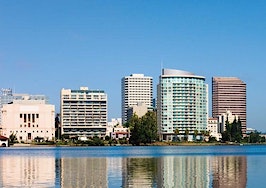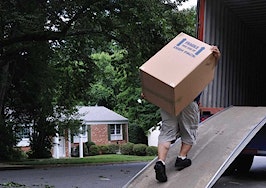The demand for improved access to building permit data has pushed one global information provider to grow its database and influenced a city to launch a new app.
CoreLogic announced it has expanded its building permit data to include more than 28 million residential, commercial and industrial permits. This number represents roughly 65 percent of all residential and commercial permits pulled in the U.S. in a given year.
The database now tracks more than 35 permit types and is intended for use by appraisers, marketers, homebuyers, lenders, Realtors, insurers and servicers.
“Building permit data can provide critical insights into a variety of purchasing, marketing, financial and risk decisions,” said Randy Wussler, vice president at CoreLogic. “Our database and standardized reporting makes accessing and consuming the information easier.”
The database uses assessor parcel numbers, along with standard addresses and latitude/longitude, to link with other CoreLogic property and mortgage data sets. The integration allows users to gain visibility into all details related to a specific building permit or property improvement.
In the San Francisco Bay Area, the city of Alameda will launch a new permit-focused app that will display, via an interactive map, information on permit applications filed with the city during the past five years.
The city partnered with app developer Buildingeye to create the new app, which also will contain three years’ worth of code enforcement information.
Previously, Alameda permit information was available through the city’s online planning and permit database, but obtaining information was challenging for users. The new app allows individuals to look up applications by address or property type.
Users can also click on the interactive map’s location pins to find out what a property owner applied to do at a site and if the application was approved. The app will also feature links to the city’s permit database if a user seeks more specific project details.
The app has been deployed in other cities including San Francisco and Palo Alto, California, and Salt Lake City and Seattle, according to CoreLogic’s website.







